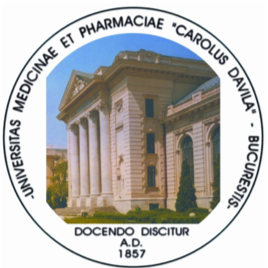📚About the Program
Bachelor’s in
General Medicine at
Al-Farabi Kazakh National Medical University
The successful completion of this subject, students should be able to:
1. To apply detailed knowledge of the typical structure and functions of the human body at the level from molecules to cells of organs and the whole organism; apply knowledge of the main pathological processes and biological damage that they cause.
2. Collect information from patients and other sources related to the diagnosis, treatment and prevention of common and emergency conditions, including the performance of diagnostic procedures.
3. Identify and interpret the clinical symptoms and syndromes, the data of laboratory and instrumental methods of research of patients with the most common diseases in their typical manifestation and course in the age aspect; interpret, analyze, evaluate, and prioritize relevant data for developing a plan for diagnosing and managing a disease, including initiating appropriate interventions.
4. Integrate clinical skills and knowledge to provide individualized approach in the treatment of a specific patient, and the strengthening of health in accordance with its needs; make professional decisions based on the analysis of the rationality of diagnosis and applying the principles of evidence-based and personalized medicine.
5. Apply knowledge of the basic principles of human behavior for effective communication and therapeutic and diagnostic process in compliance with the principles of ethics and deontology; apply knowledge of the psychology of the patient, taking into account cultural characteristics and race; demonstrate skills in teamwork, organization and management of the diagnostic and therapeutic process; effectively build dynamic relationships between doctor and patient, which occur before, during and after medical treatment; effectively communicate medical information verbally and in writing to provide safe and effective care for patients; work effectively in an interprofessional / multidisciplinary team with other health care professionals;
6. To provide medical care for the most common diseases in patients of all age groups, in urgent and life-threatening conditions;
7. To apply knowledge of the rights, duties and ways of protecting the rights of the physician and the patient, including the child as a patient, in their professional activities; apply medical knowledge, clinical skills and professional attitude to the patient regardless of his age, culture, faith, traditions, nationality, lifestyle.
8. Analyze and maintain the necessary documentation and organization of documents in health care organizations; the use of modern information and digital technology, and health information systems for professional applications.
9. Apply knowledge of the principles and methods of formation a healthy human and family life, population health; apply knowledge of a set factors that determine health and disease for the purpose of prevention.
10. Demonstrate commitment to the highest standards of professional responsibility and honesty; observe ethical principles in all professional interactions with patients, families, colleagues and society as a whole, regardless of ethnic characteristics, culture, gender, economic status or sexual orientation;
11. Demonstrate the need for continuing professional education and the improvement of their knowledge and skills throughout their professional activities.
12. Demonstrate skills in scientific research, the pursuit of new knowledge and transfer knowledge to others.
Show less
Show more










